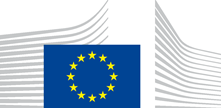Developing bystander responses to sexual harassment among young people
In 2014 the Fundamental Rights Agency found that sexual harassment (SH) was the most prevalent form of violence against girls and women, across the 28 EU member states. A promising new approach to the prevention of SH is targeting young people as bystanders, inviting them to notice and intervene in SH situations. In this project, developed in Portugal, Slovenia, United Kingdom and Malta, the researchers will develop, pilot, implement, and evaluate a school-based programme for bystanders to prevent SH in high-schools.
Website of the project: http://www.bystanders.eu/
Objectives:
- increase knowledge and awareness of SH in students and staff;
- develop, pilot and deliver a training program for students and school staff to enable them to intervene in situations of SH;
- increase the motivation of bystanders to stop SH in high schools;
- develop a manual and materials adapted to each country;
- develop school policies and protocols on SH;
- compare the implementation and effectiveness of the program in the four countries.
Activities:
- Audit of current approaches on SH (literature review, background research, focus groups, development of the training programmes);
- Pilot of the training programmes with students and school staff;
- Implementation of the programmes and work with the schools (preparatory work with staff, implementing programmes in two classes in each school, assisting students and staff in developing school policies on SH, evaluation and revision of the programme materials);
- Reflection and dissemination (website, Facebook page, video production, writing papers on the implementation, comparative analysis and writing a comparative paper, presenting the results at 4 national seminars).
Expected results:
Concerning students: improved knowledge about SH; enhanced capacity to identify the diverse forms of SH; improved confidence and commitment to preventing SH; new intervention skills to act in situations of SH; involvement in the development of school policies with staff; evidence that the skills and policy have been used.
Concerning school staff: increased awareness and knowledge of SH in schools; enhanced capacity to identify the diverse forms of SH; willingness and commitment to work with students in preventing SH; evidence that there is more support for victims and responsibilisation of perpetrators; enhanced capacity to implement the programme and policies at school.
Partners:
- Association for Women, Alternative and Response (A União de Mulheres Alternativa e Resposta – UMAR), Portugal
- London Metropolitan University, United Kingdom
- Peace Institute (Mirovni inštitut), Slovenia
- Society for non-violent communication (Društvo za nenasilno komunikacijo – DNK), Slovenia
- Faculty for Social Wellbeing, University of Malta

